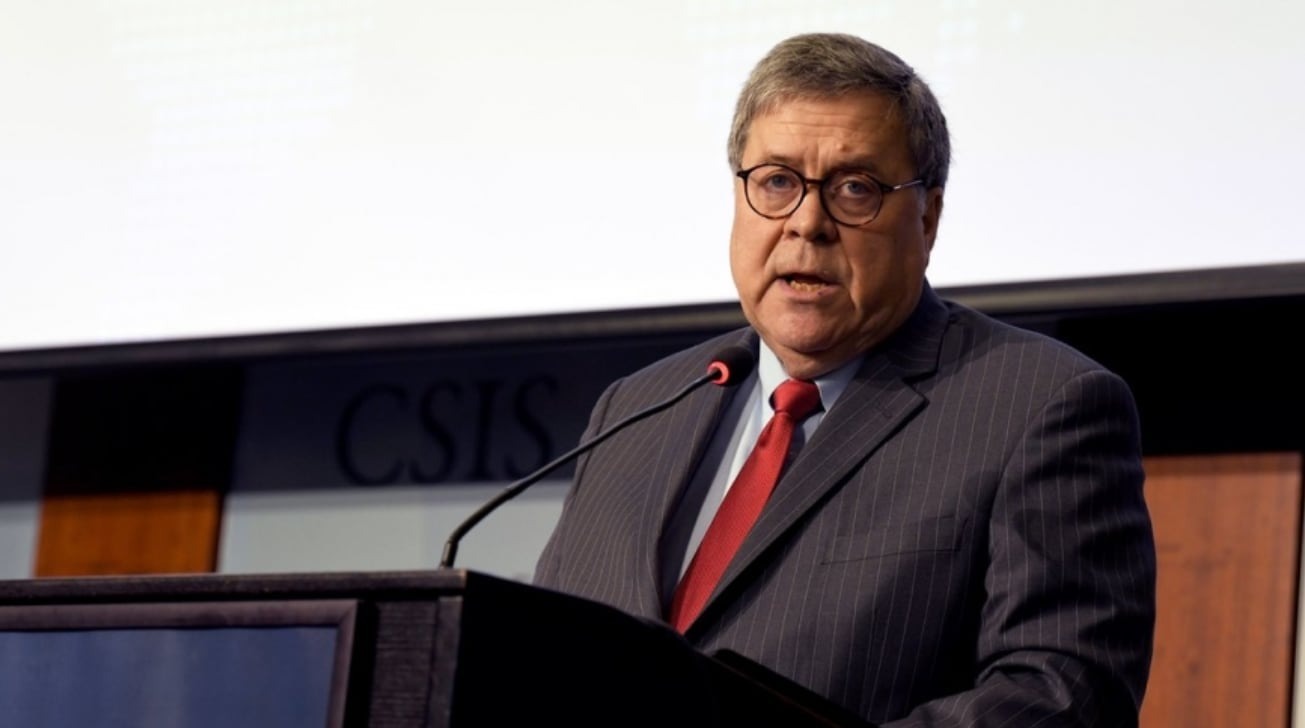U.S. Attorney General Barr on Thursday accused Apple and other major tech and entertainment companies of being "too willing to collaborate" with the Chinese Communist Party.
Apple and encryption have been a target of Barr's over the previous years, particularly since the company continues to refuse to build a backdoor into its devices. Most recently, the controversial topic came up in the wake of the December 2019 shooting at the Pensacola Naval Air Station.
During a speech on China policy at the Gerald Ford Presidential Museum in Michigan, the attorney general criticized both Hollywood and Silicon Valley for being too cozy with Beijing and the Chinese Community Party (CCP).
"Over the years, corporations such as Google, Microsoft, Yahoo, and Apple have shown themselves all too willing to collaborate with the CCP," Barr said.
Barr singled out Apple, noting the company removed the Quartz app during recent pro-democracy Hong Kong protests, deleting virtual private networks (VPNs) from the Chinese App Store, and transferring some of its iCloud data to domestic servers in the country.
The attorney general also doubled-down on his criticisms of Apple for refusing to help the Justice Department break into two iPhones used by the gunman in the Pensacola shooting. Although Apple provided the FBI with all the relevant cloud-based data that it had, Barr said that the FBI was ultimately only able to break into one of the devices "through a fluke" after months of attempts and "without any help from Apple."
Barr claimed that Apple and other companies were operating under a "double standard" in an effort to appease the Chinese market, adding that Beijing has used tactics such as threatening retaliation and barring market access to "exert influence."
"Do you think that ... Apple phones in China are impervious to penetration by Chinese authorities?" Barr said. "They wouldn't be sold if they were impervious to Chinese authorities." Despite insinuating that Chinese officials can break into iPhones, Barr did not provide any evidence backing up the allegations.
Apple maintains that it will never create a backdoor into its encryption technology or devices. In lieu of that, however, U.S. authorities have proven in the past that they are able to bypass the company's security mechanisms with third-party tools, even on current devices like iPhone 11.
In addition to his frequent critiques of Apple, Barr has also pushed against encryption in general, particularly end-to-end encryption used by messaging platforms like WhatsApp and iMessage.
 Mike Peterson
Mike Peterson




-xl-m.jpg)



 Amber Neely
Amber Neely
 William Gallagher
William Gallagher
 Malcolm Owen
Malcolm Owen

 Mike Wuerthele
Mike Wuerthele


 Thomas Sibilly
Thomas Sibilly







